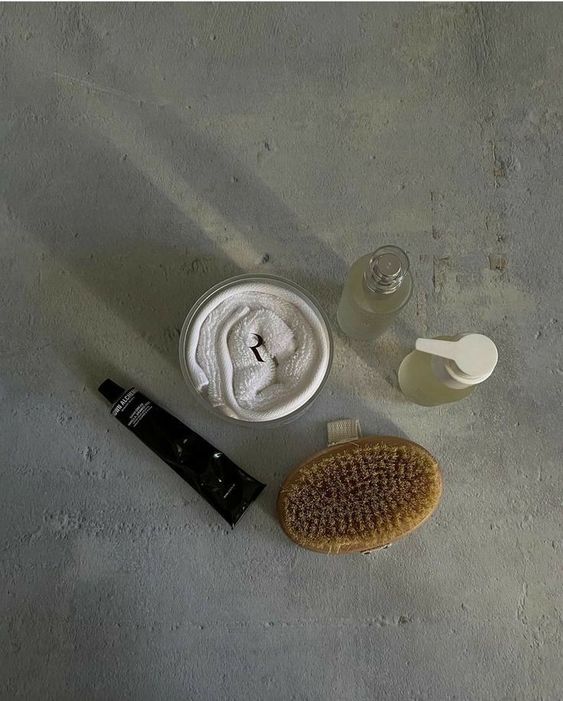
Who doesn't love to sleep? Whether it is a nap or a full good night's sleep, we all wish the day had more than 24 hours to give our bodies the chance to rest, recharge, heal, and repair. Sleep is non-negotiable, it is an essential part of our survival and a crucial bodily need that must be met. Some experts even dare to claim that it is more important than diet for good health. Eleven days and 25 minutes[1] is the longest time a human being has been able to remain awake; however, it only takes 16 hours of sleep deprivation to start experiencing a body-mind deterioration[2].
In order to understand how sleep, or its lack thereof, impacts our health, we will review its different stages, functions and even share with you some incredible beauty sleep tips that promote a radiant complexion while using our must-have skincare products: the Timeless Reset Face Cream and Silky Pearlfection Face Serum.
What Does Beauty Sleep Mean?
Beauty sleep is a sleeping routine that promotes a healthy and attractive looking skin by supporting its natural functions. It is that simple and no, it is not a myth or a concept created for marketing purposes. Beauty sleep is a real thing and once you understand the importance of sleep you will realize how crucial hygienic sleeping patterns are.
Phases, Sub-phases, and Overall Purpose of Sleep
Sleep is an active process that allows a complete physiological/psychological recovery. It involves the activity of different brain waves as well as the movement of eye area muscles. Sleep consists of 2 phases: non-rapid eye movement sleep (NREM) and rapid eye movement sleep (REM).
NREM
-
Subphase 1
:- Lasts just a few minutes (1-5)
- Is the lightest stage of sleep
- Physical activity diminishes starting with a gradual reduction of the vital signs and the metabolism
- Sleep is easily disturbed by sensorial stimuli such as noise
- When the person wakes up, they think they had experienced daydreaming
-
Subphase 2
:- Lasts 10-20 minutes
- It is a bit more profound than subphase 1
- Induces a state of progressive relaxation
- Bodily functions continue to slow down
- The person can wake up relatively easy
-
Subphase 3
:- Lasts 15-30 minutes
- It is the initial stage of the deep sleep state
- Muscles are completely relaxed
- Vital signs continue dropping but remain stable
- The person does not wake up easily and rarely moves
-
Subphase 4
:- Lasts about 15-30 minutes
- It's the deepest state of the NREM sleep
- Vital signs are considerably lower
- Sleepwalking and enuresis (urinary incontinence) happen during this stage
- It is very difficult to wake up the person
REM
- Starts approximately 90 minutes after falling asleep
- Has an average duration of 20 minutes
- Truly vivid dreams take place during REM
- It is characterized by rapid eye movement, an increase in blood pressure/gastric juices, tone loss of skeletal muscles and unstable cardiac/respiratory frequencies
- Waking up the person can turn out to be an extremely difficult task
The awake-sleep stages are regulated by both the circadian rhythms and homeostasis. The first ones represent a 24-hour cycle, part of our inner clock, that controls a wide array of emotional, behavioral, and physical functions that are influenced by the exposure to light and darkness. Homeostasis, on the other hand, is like a biological tracker that records the number of hours that you have stayed awake. As hours go by, it will gradually increase the strength of signals from the brain that will induce a longer and deeper sleep. Factors like age, diet, diseases, drugs, jet lag, night shifts, a sedentary lifestyle, stress, and exposure to light can really mess up with these sleep-regulating mechanisms.
* restorative sleep is experienced during these stages
Sleep Deprived? What Are The Reciprocal Consequences?
[4][5][6]Basically, your brain isn't capable of detoxing. The glymphatic system is akin to a neurological lymphatic system that removes byproducts of our brain via the cerebrospinal fluid. This flushing process happens during our sleep, particularly the deep sleep phase, so the less we sleep the more waste matter we will accumulate in the brain. Such phenomenon will result in the following:
- Forgetfulness
- Collagen breakdown
- Moodiness and irritability
- Dilated blood vessels
- It is the equivalent to being drunk
- Adversely impacts insulin levels
- Difficulty burning body fat (and easy weight gain)
- Muscle mass loss
- Impaired skin regeneration
- Diminished nightly perspiration (which impacts the moisture levels of the skin)
- Reduced performance, productivity, thinking, ability to concentrate and reaction time
- Limited creativity, learning and problem solvent capacity
- Compromised immune system
- 70% reduction of natural killer cells (anticancer cells)
- Reduced lifespan
- Increased concentration of pro-inflammatory proteins (C-reactive and cytokines)
- Hormone imbalances (less melatonin and human growth hormone secretion)
- Reproductive system disorders
- Higher cortisol levels (this equals more inflammation)
- Increases your risk of diabetes, cardiovascular disease, high blood pressure
- Accelerated intrinsic aging (make you look and function like someone who is 10 years older)
- Unhealthy foods cravings: our bodies release more ghrelin (hormone that controls hunger) and less leptin (hormones that makes us feel satisfied)
- Increased risk of anxiety, depression, hallucinations and dementia: including Alzheimer's disease due to build-up of beta amyloid protein)
As for your skin’s health, all these negative changes can be perceived as[8][9][10]:
- Acne
- Dull and pale skin
- More fine lines, wrinkles, and sagginess
- Puffy eyes and dark under-eye circles
- Dull and frazzled appearance
- Droopy eyelids and corners of the mouth
- Slower recovery after UV exposure
- Impaired barrier function (dry skin, exacerbation of dermatitis and psoriasis)
These cutaneous signs can and do become visible after just 1 day of sleep-deprivation. But do not despair, as we have some super effective beauty sleep tips for you that will help to get your beauty sleep back on track:
-
Set up a beauty sleep routine
: wake up and turn in at the same time, even during weekends (a few exceptions are ok). You, as an adult, need to sleep an average of 7-9 hours daily. It has been shown that sleep is much more reparative if you go to bed before 11 pm[12]. Deep sleep stages happen at the same time, so if you go to bed too late you will not be able to fully detox and recover. If you have no option because you cover a night shift, just focus on getting good quality sleep. For those who want to start going to bed earlier, we recommend doing this in a progressive way (start with 15-30 minutes, then increase to 1 hour). -
Make sure the room you sleep in is dark and without noise
: if necessary buy blackout curtains and wear both earplugs and an eye mask. -
Keep all the blue light devices out of your room during your sleep
: no TV, computers, cell phones, etc. Stop exposure to that light 1 hour before sleep, if possible. You can read, listen to music, or practice relaxation exercises instead. -
Avoid creating mental associations between your bed and other activities
: work, watching TV, eating, etc. should take place at an appropriate setting. The bed should be reserved for sex, resting, and sleeping only. -
Organize your sleep routine so that you do not have to set up an alarm
: if you need to be woken up that means you haven't slept enough. - If you have trouble sleeping after 30 minutes, go to another room and try to engage in relaxing activities. Once you feel sleepy, you can return to your room, and you will see how easily you fall asleep.
- Your last meal, including drinks, should be consumed 2-3 hours before turning in.
- Stay away from late alcohol consumption and always drink it in moderation (if you must) as it fragments sleep.
- Coffee intake should be kept during the mornings only as caffeine can remain in your system for more than 6 hours. Plus, it can reduce the amount of time you spend in the deep sleep stage. Foods like almonds, apples, bananas, berries, ginseng, maca, water + lemon juice (or apple cider vinegar) can provide that extra boost without altering your sleep-wake cycle.
- Naps are ok as long as you always take them at the same time (but not too late). If you have insomnia problems, it is best to avoid them and work at incorporating the other sleeping habits that we cover here.
- Melatonin should only be consumed if prescribed by a health practitioner.
- Cool down: your body temperature needs to drop to around 65 °F (18 °C) to induce/initiate sleep and remain asleep[7]. So, forget about those super-hot rooms that only disturb your sleep. Believe it or not, taking a hot bath/shower can help you achieve this goal. Yes, the water feels hot but once you get out of the shower/bathtub the water will evaporate causing a drop in body temperature[7].
- Work with a Cognitive Behavioral therapist to incorporate tools that will allow you to change your sleeping patterns.
- If you still have problems changing your sleeping habits, it is crucial that you see a specialist. It is possible that you suffer from an underlying condition that is preventing you from enjoying a night of repairing sleep.
As you have read, getting proper beauty sleep is non-negotiable. You either incorporate healthy sleeping habits or you will soon have to face the consequences. Sleep deprivation can quickly become evident on your appearance and lead to a myriad of health issues. Lack of sleep can't be compensated for, but it is never too late to start sleeping well and prevent further damage. To learn more about how to take better care of your skin, make sure to follow us on Instagram, Facebook, Pinterest, and Linkedin.
References:
[1] https://www.newscientist.com/question/how-long-can-you-go-without-sleep/#ixzz7Ef8TI2AW
[2] https://www.youtube.com/watch?v=Y-8b99rGpkM
[3] https://www.ninds.nih.gov/Disorders/patient-caregiver-education/understanding-sleep
[4] https://www.sleepfoundation.org/stages-of-sleep
[5] https://www.youtube.com/watch?v=VY76T7jQ9pE
[6] https://www.youtube.com/watch?v=dqONk48l5vY
[7] https://www.youtube.com/watch?v=5MuIMqhT8DM
[8] https://academic.oup.com/sleep/article/36/9/1355/2453883
[9] https://pubmed.ncbi.nlm.nih.gov/25266053/
[10] https://www.sciencedirect.com/science/article/pii/S030698771000246X
[11] https://www.sleep.org/how-sleep-works/how-sleep-improves-your-skin/





